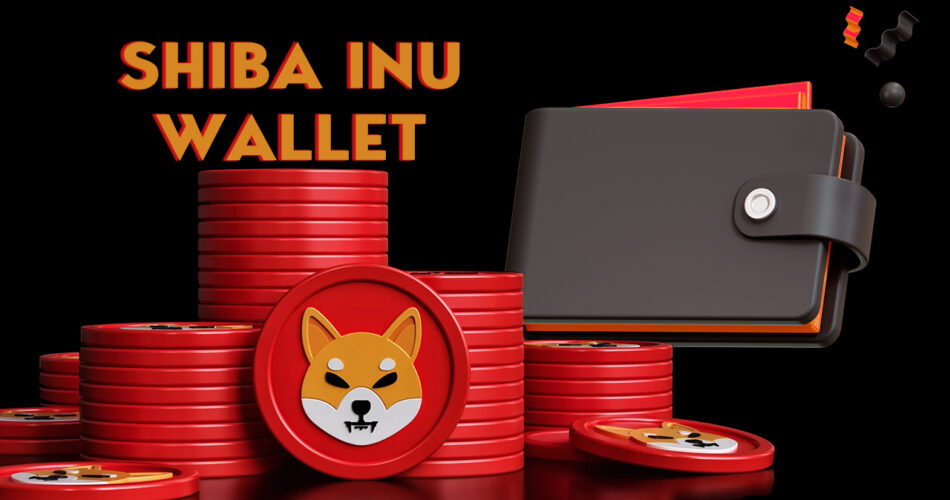We’ve rigorously tested the crème de la crème of Shiba Inu wallets, mirroring our comprehensive approach seen in our Ethereum wallet evaluations. Our journey through the digital wallet landscape has led us to a treasure trove of secure and efficient options for the discerning Shiba Inu enthusiast.
Table of Contents
The Shiba Inu token has not just been a meme; it’s a burgeoning digital asset that demands secure storage solutions. With a plethora of wallets vying for attention, discerning the best from the rest is crucial. Our foray into the world of Shiba Inu wallets is more than a list; it’s a guide forged from extensive testing and community feedback, ensuring your digital tokens are as secure as they are ready for a moonshot.
The Anatomy of Shiba Inu Wallets
A Shiba Inu wallet is a specialized type of software or hardware designed to store, send, and receive SHIB tokens, which adhere to the ERC-20 network protocol. This means they are built to be compatible with the vast ecosystem of Ethereum, allowing for seamless integration with decentralized applications (dApps) and smart contracts.
Core Components of a Shiba Inu Wallet:
- Public Address: This is your wallet’s identifier on the blockchain, akin to an email address that you share to receive SHIB tokens.
- Private Key: The secured access to your funds, like a password, must be kept confidential at all times.
- Seed Phrase: A recovery phrase that can restore your wallet’s access if you forget your private key or your wallet is lost.
- ERC-20 Compatibility: Since SHIB is an ERC-20 token, the wallet must be able to interact with the Ethereum network to manage these assets.
The Importance of Fort Knox-Level Security
Given that Shiba Inu operates on the ERC-20 network, the security protocols of a wallet are not just a feature but a necessity. The decentralized nature of blockchain means that once a transaction is made, it’s irreversible. Hence, the wallet’s security measures are critical to protect against unauthorized access and potential threats.
Security Measures to Look For:
- Encryption: Strong encryption standards protect the data within your wallet, particularly your private keys.
- Two-Factor Authentication (2FA): An additional layer of security requiring a second form of verification before accessing the wallet.
Types of Shiba Inu Wallets
Each wallet type offers a different approach to storing and managing Shiba Inu tokens, and the choice largely depends on the user’s specific needs, such as the desired balance between security and convenience, the frequency of transactions, and the amount of SHIB they plan to store.
Here’s a detailed chart that outlines the various types of Shiba Inu wallets, each with its unique features and functionalities tailored to the ERC-20 network:
| Type of Wallet | Description | Security Level | Accessibility | Convenience | Best For |
|---|---|---|---|---|---|
| Hardware Wallet | Physical devices that store SHIB offline, providing protection against online hacking attempts. | Very High | Low | Low | Long-term holders seeking maximum security |
| Software Wallet | Applications or programs that can be installed on a device, offering a balance of security and ease of use. | Medium to High | High | High | Daily users requiring regular access |
| Mobile Wallet | Wallets in the form of smartphone apps, designed for managing SHIB on the go. | Medium | High | High | Users who need to access their SHIB tokens frequently from various locations |
| Web Wallet | Online wallets accessible through a web browser, often provided by exchanges. | Low to Medium | Very High | Very High | Casual users for quick transactions with lower security requirements |
| Paper Wallet | A physical document containing a public address for receiving SHIB and a private key to spend them. | High | Low | Low | Holders looking to store SHIB without any digital footprint |
| Desktop Wallet | Software stored on a personal computer that allows for SHIB management. | Medium to High | Medium | Medium | Users who prefer managing their SHIB from a desktop or laptop for added security |
Top 8 Shiba Inu Wallets
Best Shiba Inu Wallet: Our Top Selections
We unveil our top picks, each wallet scrutinized for security, ease, and agility.
| Wallet | Type | Key Features | Pros | Cons |
|---|---|---|---|---|
| Tangem Wallet | Hardware | Card-shaped, secure chip, NFC-enabled | High security, portable, no battery required | Less convenient for quick trades |
| Atomic Wallet | Software/Desktop/Mobile | Multi-currency support, built-in exchange, staking | User-friendly, private keys stored on device | Online risks if device is compromised |
| Exodus Wallet | Software/Desktop/Mobile | User-friendly, live charts, multi-currency, built-in exchange | Great UI, good customer support | Not open-source |
| Ledger Wallet | Hardware | Multi-currency support, Ledger Live software, high security | Extremely secure, supports multiple apps | Requires purchase of hardware |
| Trezor Wallet | Hardware | Open-source, multi-currency support, security features | Trusted security, supports numerous cryptocurrencies | Costly compared to software wallets |
| Coinbase Wallet | Mobile/Web | User-friendly, dApp browser, multi-currency support | Easy to use, reputable brand | Centralized, privacy concerns |
| MetaMask | Browser Extension/Mobile | Ethereum and ERC-20 tokens support, integrated with most dApps | High accessibility, widespread dApp compatibility | Browser-based risks, focus on Ethereum network |
| Trust Wallet | Mobile | Multi-currency support, staking, dApp browser | User-friendly, mobile-first design | No desktop version, reliance on mobile security |
Tangem Wallet – Best Shiba Inu Wallet Overall

Tangem Wallet brings a unique physical twist to the digital realm of Shiba Inu storage. Resembling a credit card, this hardware wallet uses secure chip technology to keep your SHIB tokens safe. With just a tap using NFC (Near Field Communication), you can manage your Shiba Inu tokens with the assurance of cold storage.
Pros and Cons
| Pros | Cons |
|---|---|
| Highly secure offline storage | Not as quick for frequent trading |
| Portable and durable design | Higher initial cost than software wallets |
| No power source required, long-lasting | Less intuitive for users accustomed to app interfaces |
Atomic Wallet
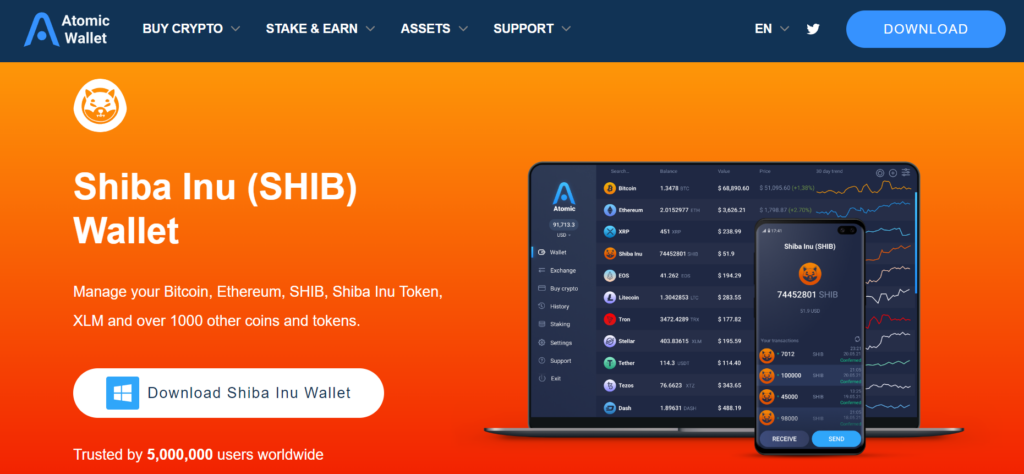
Atomic Wallet offers a versatile software solution for Shiba Inu enthusiasts. It’s a desktop and mobile wallet that supports a multitude of cryptocurrencies, including SHIB. With an in-built exchange and staking capabilities, it’s a one-stop-shop for managing your digital assets.
Pros and Cons
| Pros | Cons |
|---|---|
| User-friendly interface | Potential online security risks |
| Private keys are kept on the user’s device | Not as secure as hardware wallets |
| Supports staking for additional rewards |
Exodus Wallet
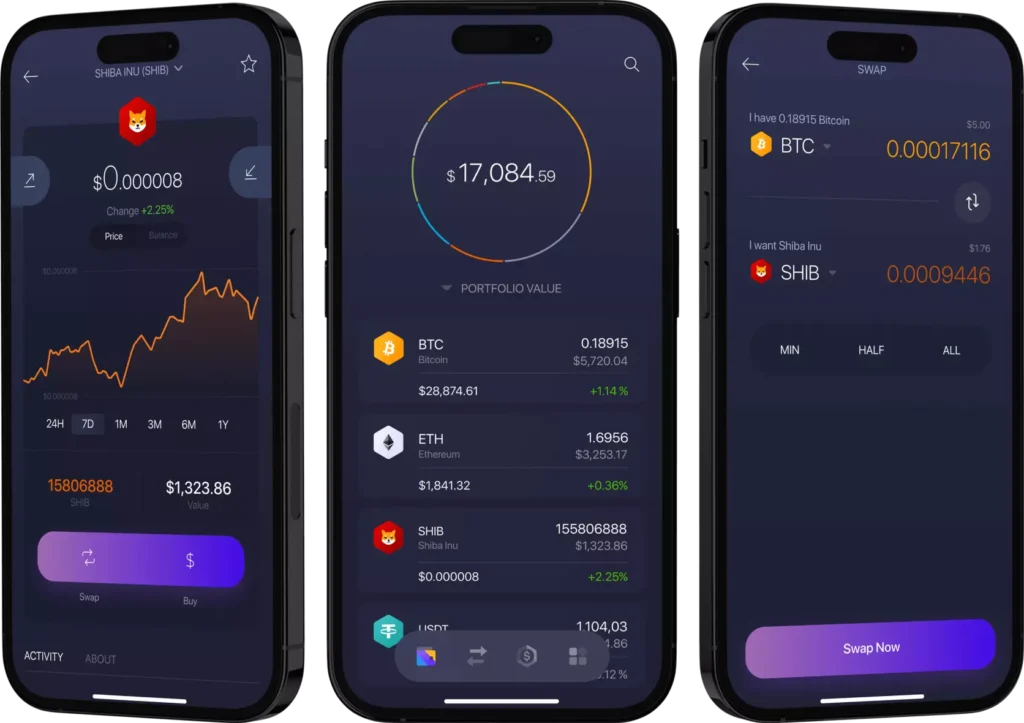
Exodus Wallet is designed for the Shiba Inu investor who values aesthetics and functionality. It’s a software wallet that offers a seamless experience across desktop and mobile platforms, complete with live charts and a built-in exchange to keep track of your SHIB investments on the fly.
Pros and Cons
| Pros | Cons |
|---|---|
| Intuitive and visually appealing UI | Closed source which may deter some users |
| Excellent customer support | Less customizable than other wallets |
| Multi-currency support with real-time tracking |
Ledger Wallet
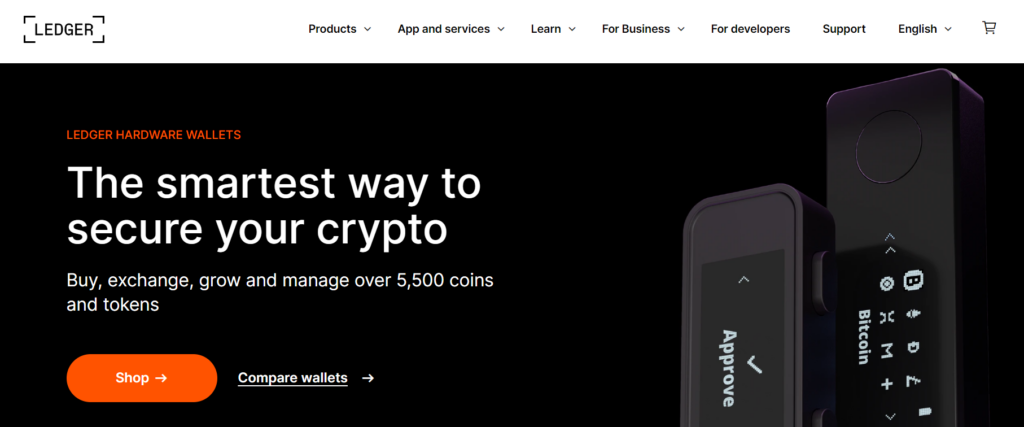
Ledger provides an impenetrable fortress for Shiba Inu tokens with its hardware wallet solutions. Users can connect their Ledger devices to ShibaSwap, combining the platform’s DeFi capabilities with Ledger’s renowned security.
Pros and Cons
| Pros | Cons |
|---|---|
| Top-notch security features | Hardware purchase necessary |
| Supports a wide range of cryptocurrencies | Can be less convenient for quick transactions |
| Integrates with Ledger Live for easy asset management | |
| Hardware-level security for using ShibaSwap |
Trezor Wallet
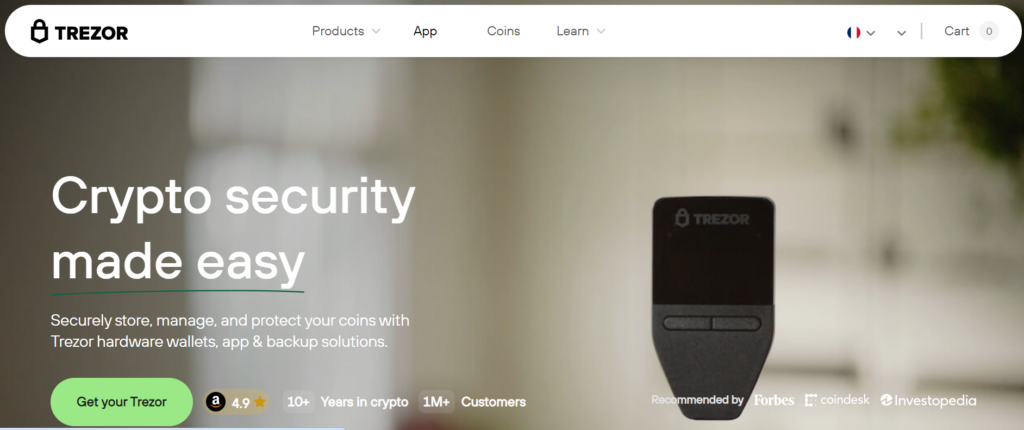
Trezor, a trailblazer in hardware wallets, also offers Shiba Inu holders the ability to connect to ShibaSwap. This integration allows for a secure and robust way to participate in the platform’s various DeFi services.
Pros and Cons
| Pros | Cons |
|---|---|
| Open-source software for enhanced trust | More expensive than software wallets |
| High-level security when using ShibaSwap | Not as user-friendly for beginners |
| Supports numerous cryptocurrencies and features |
Coinbase Wallet
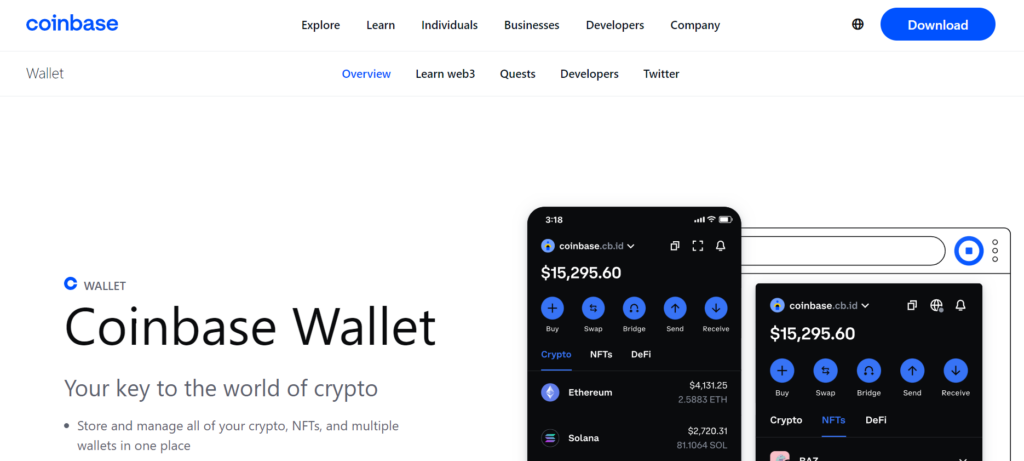
Coinbase Wallet is a versatile choice for Shiba Inu enthusiasts, offering a straightforward path to the world of decentralized finance. It’s compatible with ShibaSwap, enabling users to engage directly with the platform’s features, such as swapping and liquidity provision.
Pros and Cons
| Pros | Cons |
|---|---|
| Easy to set up and use | Centralized, which may not appeal to all users |
| Backed by a reputable company | Privacy concerns due to KYC requirements |
| Built-in dApp browser for exploring the DeFi ecosystem |
MetaMask
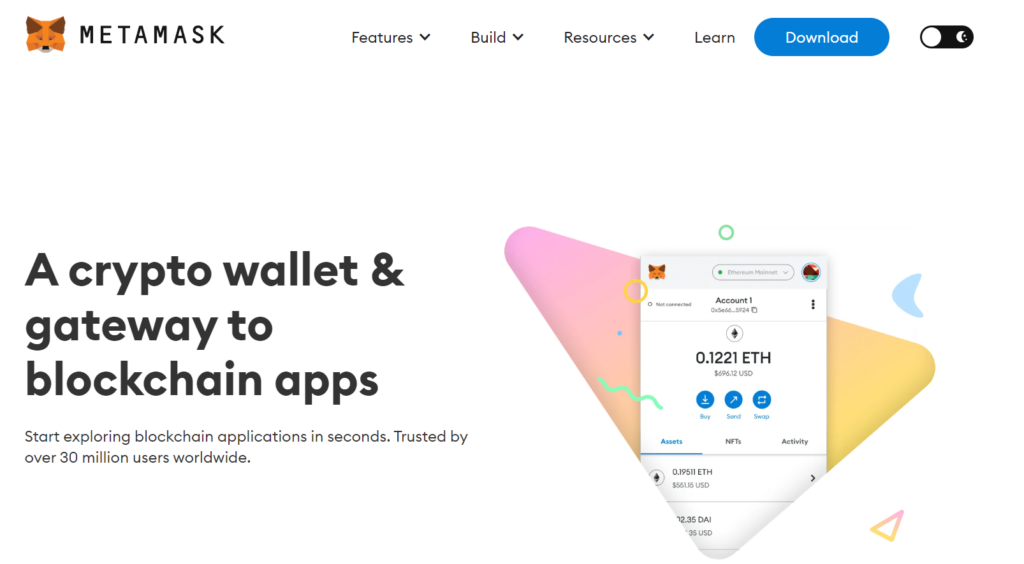
MetaMask stands out as a bridge to the Ethereum ecosystem, offering Shiba Inu holders a seamless interface for ERC-20 tokens. It’s particularly advantageous for those looking to engage with ShibaSwap, as it can be easily connected to the platform, allowing users to swap, stake, and provide liquidity with SHIB tokens.
Pros and Cons
| Pros | Cons |
|---|---|
| Direct integration with ShibaSwap for DeFi activities | Mainly Ethereum-focused, which may limit some cross-chain interactions |
| Widely used and trusted in the crypto community | Vulnerable to browser security risks |
| User-friendly interface for quick transactions |
Trust Wallet
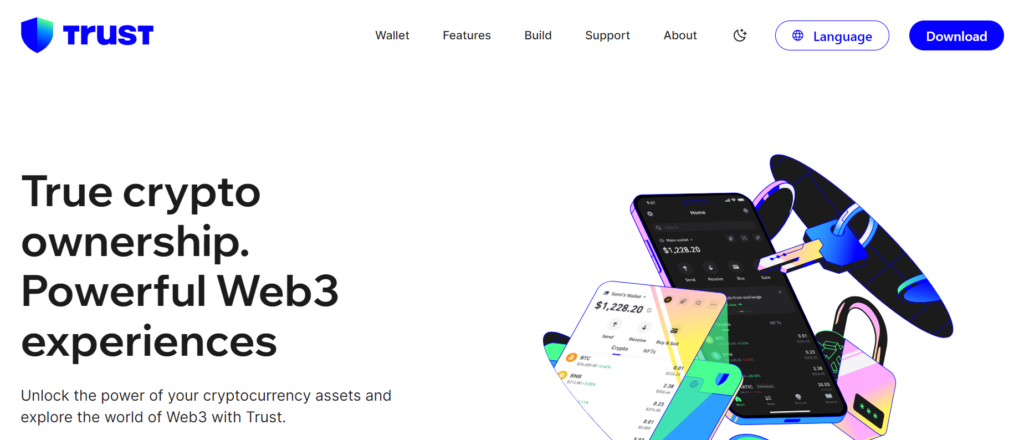
Trust Wallet is a mobile-first solution for Shiba Inu collectors on the move. With support for multiple cryptocurrencies and a built-in dApp browser, it’s designed for those who want to manage their SHIB tokens and explore the DeFi space from their smartphone.
Pros and Cons
| Pros | Cons |
|---|---|
| Intuitive mobile interface | No desktop version limits access options |
| Supports staking and various blockchains | Security is as strong as the mobile device’s security |
| Enables direct trading within the app |
How to Add Shiba Inu into the Wallet?
Adding Shiba Inu (SHIB) to your chosen wallet is a straightforward process, but it’s crucial to follow the steps carefully to ensure your tokens are managed correctly. Here’s a detailed guide on how to add SHIB to your wallet:
- Accessing the Wallet: Open your wallet application. This could be a hardware wallet interface like Ledger Live, a mobile app like Trust Wallet, or a web extension like MetaMask.
- Navigating to Tokens: Within your wallet, locate the section where you can manage different cryptocurrencies. This is often labeled as “Tokens,” “Assets,” or “Add Token.”
- Adding Shiba Inu: In the token management section, there should be an option to add a new token. Select this option to begin the process of adding Shiba Inu to your wallet.
- Searching for Shiba Inu: Use the search bar to type in “Shiba Inu” or “SHIB.” If your wallet has Shiba Inu as a pre-listed token, it should appear in the search results. Select it to add it to your wallet.
- Manual Addition: If Shiba Inu does not appear in the search results, you will need to add it manually. Select the option to add a custom token or “Add Token by Contract Address.”
- Entering the Contract Address: In the field provided for the contract address, enter the Shiba Inu Ethereum contract address:
0x95ad61b0a150d79219dcf64e1e6cc01f0b64c4ce. This address is the unique identifier for the Shiba Inu token on the Ethereum blockchain. - Completing the Addition: After entering the contract address, the wallet should automatically fill in the remaining details such as the token symbol (SHIB) and the decimals (usually 18). Confirm that all details are correct.
- Finalizing the Process: Save or confirm the addition of the new token. Shiba Inu should now be added to your wallet, and you will be able to receive, store, and send SHIB tokens.
- Verification: It’s always a good practice to verify the addition. You can do this by checking your wallet’s token list to ensure that Shiba Inu is now visible and by sending a small amount of SHIB to your wallet as a test.
Remember, when dealing with cryptocurrencies, always double-check the contract addresses and transaction details before confirming any additions or transfers to avoid any potential loss of funds.
Tailoring Your Wallet Choice
Choosing the right wallet for your Shiba Inu tokens is a critical decision that hinges on your individual needs, security concerns, and how you plan to use your SHIB. Here’s a detailed guide to help you tailor your wallet choice to your personal cryptocurrency journey.
Assessing Your Needs
Before diving into the chart, consider what you need from a wallet:
- Frequency of Transactions: How often will you be sending or receiving SHIB?
- Volume of Tokens: Are you holding a large amount of SHIB that needs secure storage?
- Use of DeFi Platforms: Do you plan to use ShibaSwap or other DeFi platforms?
- Tech Savviness: Are you comfortable with technology, or do you need something straightforward and easy to use?
- Mobility: Do you need to access your SHIB on the go, or is a home setup sufficient?
Wallet Choice Chart
Here’s a chart to help you match your needs with the appropriate wallet:
| Need | Hardware Wallet | Software Wallet | Mobile Wallet | Web Wallet | Paper Wallet |
|---|---|---|---|---|---|
| Maximum Security | Best Choice | Good | Average | Low | Good |
| Frequent Transactions | Average | Good | Best Choice | Best Choice | Poor |
| Holding Large Volumes | Best Choice | Good | Good | Average | Good |
| DeFi Platform Access | Good | Best Choice | Best Choice | Best Choice | Poor |
| Ease of Use | Good | Best Choice | Best Choice | Good | Average |
| Technological Comfort | Good for Tech-Savvy | Good | Good for Beginners | Good for Beginners | Poor for Tech-Savvy |
| On-the-Go Access | Poor | Good | Best Choice | Good | Poor |
By considering your specific needs and comparing them with the features of each wallet type, you can choose the most suitable wallet for your Shiba Inu tokens. Remember, the right wallet is the one that balances security, convenience, and functionality to match your crypto lifestyle.
The Security Commandments
The decentralized nature of digital currencies like Shiba Inu means that you are your own bank, and with great power comes great responsibility. Here are the fundamental security commandments you should follow, presented in a detailed chart to ensure your SHIB remains safe and secure.
The Security Commandments Chart
| Commandment | Explanation | Implementation |
|---|---|---|
| 1. Use Hardware Wallets for Significant Holdings | Hardware wallets provide the highest level of security for your assets by keeping them offline. | Invest in a reputable hardware wallet like Ledger or Trezor for storing large amounts of SHIB. |
| 2. Keep Private Keys Private | Your private keys are the keys to your funds. Exposure equals risk. | Never share your private keys. Store them in a secure location, such as a locked safe or encrypted drive. |
| 3. Embrace Two-Factor Authentication | 2FA adds an extra layer of security beyond just a password. | Enable 2FA on all crypto-related accounts and services, using an app like Google Authenticator or a hardware token. |
| 4. Regularly Update Software | Outdated software may contain vulnerabilities that can be exploited. | Keep your wallet software and any related apps up to date with the latest security patches. |
| 5. Use Secure and Unique Passwords | A strong, unique password can be the first line of defense against unauthorized access. | Use a password manager to generate and store complex passwords. Avoid reusing passwords across services. |
| 6. Beware of Phishing Attempts | Phishing is a common tactic used to steal login information and private keys. | Always verify the authenticity of websites and emails. Do not click on suspicious links. |
| 7. Backup Wallets | Backing up your wallet ensures that you can recover your funds if something goes wrong. | Create a secure backup of your wallet, including seed phrases, and store it in multiple safe locations. |
| 8. Not Brag About Holdings | Publicly revealing your cryptocurrency holdings can make you a target for thieves and scammers. | Keep a low profile about your investments and holdings online and in public spaces. |
| 9. Verify All Transactions | Carefully checking transaction details can prevent sending funds to the wrong address. | Always double-check addresses and transaction details before confirming a transaction. |
| 10. Educate Thyself Continuously | The crypto space is evolving rapidly, and staying informed is crucial for security. | Regularly read up on the latest security practices and stay informed about the crypto industry. |
Conclusion: Your SHIB, Your Sanctuary
As we journey through the dynamic landscape of cryptocurrency, the importance of choosing the right wallet for your Shiba Inu tokens cannot be overstated. Whether you’re a seasoned holder or a newcomer to the pack, the sanctity of your digital assets rests in the security and functionality of your chosen wallet.
From the tactile security of hardware wallets like Ledger and Trezor to the agile convenience of mobile wallets such as Trust Wallet and MetaMask, your choice should align with your lifestyle and investment strategy. Remember, the wallet you choose is more than just a tool; it’s the guardian of your digital autonomy.
The integration of wallets with platforms like ShibaSwap opens up a realm of possibilities for SHIB holders, from staking to swapping, ensuring that your tokens are not just stored but also have the potential to grow and thrive in the burgeoning DeFi ecosystem.
However, with great power comes great responsibility. The Security Commandments we’ve outlined are not merely guidelines; they are the bedrock of your digital asset protection. Adherence to these principles is not optional—it’s essential. The crypto world is unforgiving of negligence, and the safety of your SHIB is a testament to your vigilance.
As we conclude, let’s not forget that the world of Shiba Inu is ever-evolving. Staying informed, adaptable, and security-conscious will serve you well on this journey. Your tokens are more than just a speculative asset; they are a part of a revolutionary movement in finance, and your wallet is the vessel that carries them forward.
So, as you step out into the vast, untamed wilderness of cryptocurrency, equip yourself with knowledge, arm yourself with the best tools, and walk confidently, knowing that your Shiba Inu tokens are as secure as the dedication you put into safeguarding them.
Remember, in the end, the power to secure your digital future is in your hands.
FAQs
What is the best Shiba Inu wallet for beginners?
For beginners venturing into the world of Shiba Inu and cryptocurrency, MetaMask stands out as the best wallet choice. It offers a user-friendly interface, straightforward setup process, and seamless integration with web browsers, making it highly accessible for those new to the crypto space.
Can I store other cryptocurrencies in my Shiba Inu wallet?
Yes, you can store other cryptocurrencies in your Shiba Inu wallet, especially if you are using multi-currency wallets like Trust Wallet, Exodus, Atomic Wallet, Ledger, and Trezor. These wallets are designed to support a wide range of cryptocurrencies, including but not limited to Shiba Inu, allowing for convenient management of various digital assets in one place.
